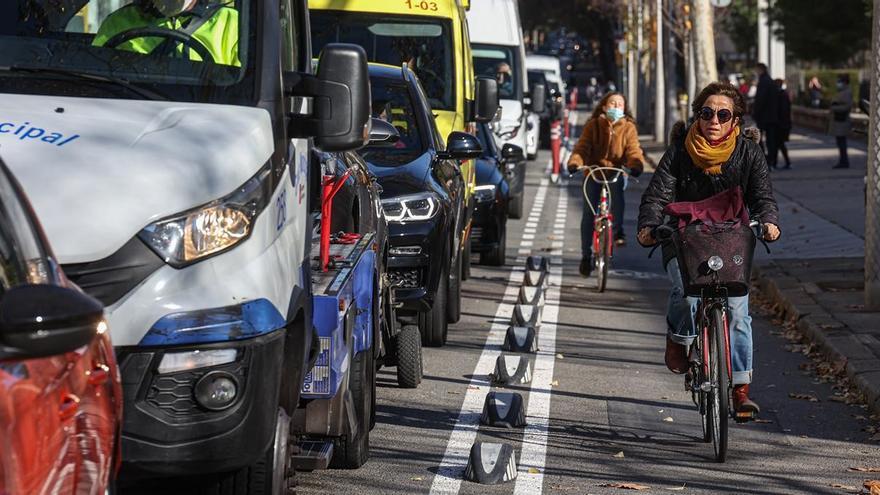The protection of the weakest has failed: In Hesse’s old people’s homes, 2,800 people have died from or with Covid-19 since the beginning of the pandemic. Nevertheless, authorities and associations do not see any failures of their own.
The fact that Corona mainly affects the elderly is only half the story. The virus does not affect all elders equally. It is especially harmful to them when they live in the home. Of the people over 60 in Hessen who live at home, around one per thousand died of or with Covid-19 – around 1,700 out of 1.7 million. In contrast, the death rate for residents of old people’s homes was five percent. There are around 2,800 of the original 58,000. That comes from the figures of the regional council Gießen.
Seniors in old people’s homes in Hessen had a 50 times higher risk of death than their peers living at home. There are several reasons for this, as the operator associations in particular emphasize: Many people in need of care with a weakened immune system live under one roof in the homes. Naturally, no distance can be maintained when it comes to care. And: Nobody wants to completely isolate the home residents from the outside world.
Own failures? Nothing
So was dying in the homes an inevitable fate? Or would the residents of the Hessian shelter have been better protected? A look at Hesse’s neighboring countries suggests that. In Hesse, two thirds of all corona deaths are attributable to the home residents, in Baden-Württemberg and Rhineland-Palatinate, however, only a third. Overall, these countries – measured by their population – have significantly fewer corona deaths than Hesse.
December was the worst month for old people’s homes in Hesse with 1,105 corona deaths. Some homes were overwhelmed with the situation and called for the Bundeswehr. Relatives were desperate; a man from the Main-Kinzig district even turned on the public prosecutor’s office after his father and mother died at or with Corona in the home. But is there – besides possible individual guilt – also political responsibility for what happened?
Where do you see failures in protecting home residents? The hr asked the responsible actors in Hesse this question. But regardless of whether it is district, city, state or operator associations: Nobody explicitly mentions their own failures. Some even object to the question of responsibility, such as the Hersfeld-Rotenburg district: “Assigning blame is completely inappropriate at this point.” The Vogelsbergkeis also thinks that this question is “ineffective when it comes to new infectious diseases.”
Nursing home study was never done
According to the law, retirement home operators must protect retirement home residents “from damage to their physical and mental health”. The operators are monitored by the Giessen Regional Council and the Ministry of Social Affairs. The ministry has the highest level of home supervision in Hesse and has to counteract undesirable developments.
In response to an HR request, the ministry lists everything that has been done for this: the homes have been advised on infection protection, the homes have been supplied with protective equipment “since the beginning of the pandemic,” and the prerequisites for meaningful corona tests have been created.
The ministry’s test strategy in particular has been criticized again and again, especially the delays in the rapid tests. How best to test in retirement homes should actually be determined in a large study. The Minister of Social Affairs Kai Klose (Greens) and the Frankfurt virologist Sandra Ciesek announced in June. However, this study never existed, as Ciesek announced in response to an HR request. It has become obsolete because of new test regulations.
RP refers to circles, the circles to RP
The “upper home supervision” lies with the regional council Gießen (RP). In his answer to the HR, this emphasizes how limited his room for maneuver is. It could not ensure the care of the home residents itself. That is the duty of the operator. The authority can only take action if it learns of grievances.
Another problem: The competencies are distributed among many different authorities. The RP has to monitor care, but the health authorities of the cities and districts are responsible for infection protection. Obviously, in practice these cannot always be clearly separated. In any case, the Werra-Meißner district, for example, refers to home supervision when it comes to the question of omissions, and the district of Gießen also wants closer networking with the state authority.
And the Odenwaldkreis is calling for a task force to provide staffing support to homes that are unable to work due to infections and quarantine. The district asked the country early on to set up such a task force. But: “That is still not the case today.”
Reconditioning required
Everyone agrees on one point: The most effective way to protect home residents from Covid is a vaccination. With these vaccinations, coordinated by the Hessian Ministry of the Interior, there is also visible progress. Since the start of the vaccination campaign at the end of December, almost two thirds of the home residents have received the first of two doses of the vaccine, and around a quarter have already been vaccinated.
But nobody can rule out the possibility that pathogens against which there is no vaccination protection will reappear. Can the homes then be protected better than before? Many circles are calling for an exchange about it. The Rheingau-Taunus district calls for a “serious, cross-district analysis”. The district of Limburg-Weilburg wants a “socio-political debate that is quite controversial”. Not just because of Corona. Because the nursing emergency existed in Hesse even before the pandemic.
Broadcast: hr-iNFO, 01.02.2021, 7:10 p.m.
–


